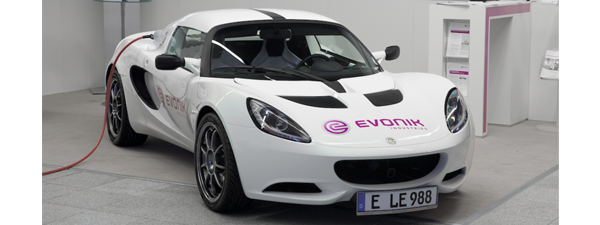The German chemical company has built a super-light electric version of the Lotus Elise that demonstrates several of the company’s innovative materials.
Building your own car may never be as simple as building a web page with Facebook, but there’s no doubt that today’s modular technologies are making it easier. This allows companies to bring their special skills to bear on a specific aspect of vehicle design. The German chemical company Evonik Industries has built a super-light and efficient electric version of the Lotus Elise that demonstrates several of the company’s innovative materials. Evonik’s Elise-E will be on display at this week’s Car Symposium in Bochum, Germany.
"The purpose of exhibiting the vehicle is to show the automotive industry what can be achieved with our expertise in chemicals," says Klaus Hedrich, head of the Evonik Automotive Industry Team.
Those specialty chemicals include the structural foam ROHACELL, which Evonik combined with carbon fibers and a new epoxy resin formula to make a body that’s 60-70 percent lighter than a comparable steel structure. Evonik’s proprietary materials also enhance the lightweight tires, which offer 20 percent less rolling resistance than comparable tires, leading to energy savings of about five percent.
Evonik’s Elise-E weighs 950 kg – far lighter than Tesla’s Elise-based Roadster (1,235 kg) – and its 150 kW motor takes it from 0-60 in a prompt 4.4 seconds. Top speed is electronically limited to 200 kph.
Image: Evonik


















































